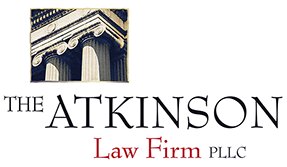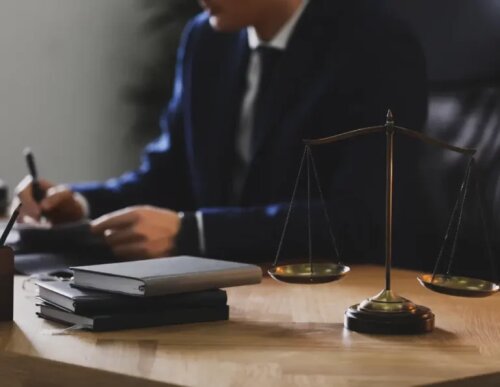Best Property Damage Lawyers in North Carolina
Share your needs with us, get contacted by law firms.
Free. Takes 2 min.
Or refine your search by selecting a city:
List of the best lawyers in North Carolina, United States
United States Property Damage Legal Questions answered by Lawyers
Browse our 1 legal question about Property Damage in United States and read the lawyer answers, or ask your own questions for free.
- MOVING COMPANY DAMAGED RENTAL HOME, FURNITURE AND NEW HOME
- MOVING COMPANY DAMAGED WALLS AND FURNITURE IN TWO HOUSES, THEY DIDNT USED PACKING BLANKETS OR MOVING EQUIPMENT, I FILED A DAMAGE CLAIM MID MOVE, AND RELIEVED THE WORKERS EARLY FROM SCHEDULED TIME TOOK PICS AND SUBMITTED TO THE MOVING COMPANY, NOW THE MOVING COMPANY IS INSINUATING WE CAUSED THE DAMAGE,... Read more →
-
Lawyer answer by T & A Legal
Hello, sorry about the damage to your walls and furniture. The moving company may be liable for a breach of contract or negligence. However, their liability will be determined largely by the contract between you and the moving company.Please note...
Read full answer
About Property Damage Law in North Carolina, United States
Property damage law in North Carolina addresses situations in which personal, commercial, or public property is harmed or destroyed due to someone else's actions or negligence. This can include automobile accidents, natural disasters, vandalism, construction defects, and more. In North Carolina, property damage claims can arise from both intentional acts and unintentional incidents. Property damage law provides remedies for those whose property has been damaged, allowing them to seek compensation or repair from the responsible party or parties.
Why You May Need a Lawyer
People often require legal help with property damage for the following reasons:
- Disputes with insurance companies over denied or undervalued claims
- Unclear liability in auto accidents or personal injury cases
- Damage to property caused by neighbors, tenants, contractors, or trespassers
- Vandalism or theft claims involving property
- Problems with government takings or eminent domain cases
- Environmental or hazardous material damage
- Business property damage which affects operations or revenue
In these situations, a lawyer can help protect your rights, negotiate with insurers or other parties, and pursue damages through the court system if necessary.
Local Laws Overview
Several key aspects of local laws are particularly relevant to property damage in North Carolina:
- Statute of Limitations: You generally have three years from the date the damage occurred to file a property damage lawsuit in North Carolina.
- Contributory Negligence: North Carolina follows a contributory negligence rule, meaning if you are even partially at fault for the damage, you may be barred from recovering damages.
- Compensatory Damages Only: Property damage awards are typically limited to the cost to repair or replace the damaged property and potentially loss of use.
- Diminished Value Claims: In auto cases, you may claim for loss in value after repairs, not just the repair cost itself.
- Insurance Requirements: Certain property owners are required to maintain insurance, but disputes with insurers can be common and often require legal intervention.
- Small Claims Court: Property damage cases under a specific dollar amount (currently $10,000) may be suitable for small claims court, offering a faster and less formal process.
Frequently Asked Questions
What is considered property damage in North Carolina?
Property damage includes harm to real property (land and buildings) as well as personal property (vehicles, electronics, jewelry, etc.) that is caused by someone else's actions, whether accidental or intentional.
How long do I have to file a property damage lawsuit?
In most cases, you have three years from the date of the property damage to file a lawsuit in North Carolina.
What if I am partially at fault for the damage?
North Carolina's contributory negligence rule means you cannot recover damages if you are found to be even partially at fault for the damage.
Can I sue my neighbor if their tree fell and damaged my property?
Potentially, yes. If your neighbor knew or should have known the tree was a hazard and failed to act, you may have a claim. However, natural events like storms generally do not result in liability unless there was clear negligence.
What if an insurance company offers me less than the cost to repair my property?
You have the right to challenge the insurance company's decision. Consulting an attorney or an independent appraiser can help support your claim for a higher payout.
Are punitive damages available for property damage cases?
Punitive damages are typically not available for standard property damage claims unless the responsible party acted with malice or willful misconduct.
Can I recover for the loss of use of my property?
Yes, you may be able to recover compensation for the time you could not use your property due to the damage, such as rental expenses or lost business profits.
Is property damage from storms or natural disasters covered?
This depends on your insurance policy. Most standard homeowners' policies cover certain types of weather-related damage, but not all. Flood or earthquake damage often requires additional coverage.
What should I do immediately after my property is damaged?
Document the damage with photos and videos, notify your insurance company, gather contractor estimates for repairs, and consider consulting an attorney especially for significant losses or complex claims.
Can I represent myself in a property damage claim?
Yes, you may represent yourself, particularly in small claims court. However, complex cases or disputes involving significant sums often benefit from the expertise of a property damage attorney.
Additional Resources
Those seeking additional information or support regarding property damage claims in North Carolina may find the following resources helpful:
- North Carolina Department of Insurance - for information on homeowner and auto insurance requirements and complaint forms
- North Carolina General Court of Justice - for guidance on filing a claim in small claims court
- North Carolina Bar Association - provides lawyer referral service and free legal information
- Legal Aid of North Carolina - offers legal help to those who qualify financially, especially after natural disaster events
- Local county clerk of court - can assist with forms and procedures for property damage lawsuits
Next Steps
If you have suffered property damage and believe you may have a legal claim, consider the following steps:
- Gather and preserve all evidence, including photographs, estimates, receipts, and communications
- Notify your insurance company as soon as possible
- Keep records of all repair and replacement costs
- If liability is disputed or the insurance offer is inadequate, seek a consultation with a licensed property damage attorney in North Carolina
- Be mindful of the three-year deadline for filing most property damage lawsuits
- Consider whether your case fits the criteria for small claims court if the amount of damages is relatively low
Acting promptly and securing proper legal advice can make a significant difference in the outcome of your property damage claim.
Lawzana helps you find the best lawyers and law firms in North Carolina through a curated and pre-screened list of qualified legal professionals. Our platform offers rankings and detailed profiles of attorneys and law firms, allowing you to compare based on practice areas, including Property Damage, experience, and client feedback.
Each profile includes a description of the firm's areas of practice, client reviews, team members and partners, year of establishment, spoken languages, office locations, contact information, social media presence, and any published articles or resources. Most firms on our platform speak English and are experienced in both local and international legal matters.
Get a quote from top-rated law firms in North Carolina, United States — quickly, securely, and without unnecessary hassle.
Disclaimer:
The information provided on this page is for general informational purposes only and does not constitute legal advice. While we strive to ensure the accuracy and relevance of the content, legal information may change over time, and interpretations of the law can vary. You should always consult with a qualified legal professional for advice specific to your situation.
We disclaim all liability for actions taken or not taken based on the content of this page. If you believe any information is incorrect or outdated, please contact us, and we will review and update it where appropriate.
Browse property damage law firms by city in North Carolina
Refine your search by selecting a city.
















